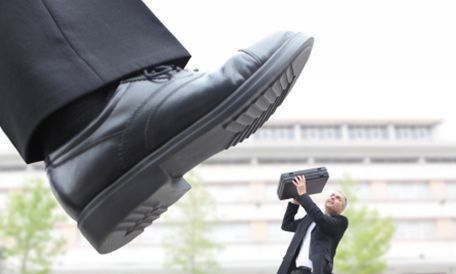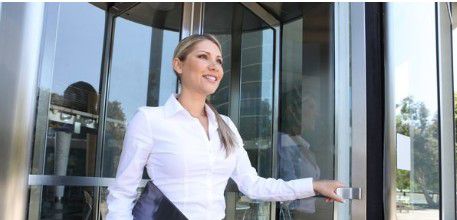上海市餐厨垃圾处理管理办法
|
上海市餐厨垃圾处理管理办法 2005年1月13日 第一条 (目的和依据) 为了加强本市餐厨垃圾处理的管理,维护城市市容环境整洁,保障市民身体健康,根据有关法律、法规和《上海市市容环境卫生管理条例》,制定本办法。 第二条 (有关用语的含义) 本办法所称餐厨垃圾,是指除居民日常生活以外的食品加工、饮食服务、单位供餐等活动中产生的厨余垃圾和废弃食用油脂。 前款所称的厨余垃圾,是指食物残余和食品加工废料;前款所称的废弃食用油脂,是指不可再食用的动植物油脂和各类油水混合物。 第三条 (适用范围) 本办法适用于本市行政区域内餐厨垃圾的收集、运输、处置及其相关的管理活动。 第四条 (管理部门) 上海市市容环境卫生管理局(以下简称市市容环卫局)负责本市餐厨垃圾处理的管理;区、县市容环境卫生管理部门(以下简称区、县市容环卫部门)负责本辖区范围内餐厨垃圾处理的日常管理。 本市环保、工商、公安、农业、经济、食品卫生、质量技监等有关管理部门按照各自职责,协同实施本办法。 第五条 (减量化和资源化) 本市倡导通过净菜上市、改进加工工艺等方式,减少餐厨垃圾的产生量。 本市鼓励对餐厨垃圾进行资源化利用。 第六条 (义务主体) 食品加工单位、饮食经营单位、单位食堂等餐厨垃圾产生单位(含个体工商户,下同),应当承担餐厨垃圾收集、运输和处置的义务。 第七条 (产生申报) 餐厨垃圾产生单位应当每年度向所在地区、县市容环卫部门申报本单位餐厨垃圾的种类和产生量。 第八条 (收集要求) 餐厨垃圾产生单位应当按照《上海市城镇环境卫生设施设置规定》,设置符合标准的餐厨垃圾收集容器;产生废弃食用油脂的,还应当按照环境保护管理的有关规定,安装油水分离器或者隔油池等污染防治设施。 餐厨垃圾产生单位应当将餐厨垃圾与非餐厨垃圾分开收集;餐厨垃圾中的厨余垃圾和废弃食用油脂应当分别单独收集。 餐厨垃圾产生单位应当保持餐厨垃圾收集容器的完好和正常使用。 第九条 (自行收运和处置) 餐厨垃圾产生单位自行收运餐厨垃圾的,应当符合市市容环卫局规定的条件,并在首次收运前向区、县市容环卫部门备案。 餐厨垃圾产生单位自行利用微生物处理设备处置厨余垃圾的,其微生物处理设备应当按照《上海市市容环境卫生管理条例》的规定向市市容环卫局或者区、县市容环卫部门办理有关手续。 除按照本条第一款、第二款规定自行收运、处置的情形外,餐厨垃圾应当由本办法第十条、第十三条规定的收运、处置单位进行收运、处置。 第十条 (收运单位) 经市市容环卫局或者区、县市容环卫部门招标确定的生活垃圾收运单位为同一区域餐厨垃圾的收运单位,负责区域内餐厨垃圾的收运。 第十一条 (收运要求) 从事餐厨垃圾收运的单位收运餐厨垃圾时,其收运的餐厨垃圾种类和数量应当由餐厨垃圾产生单位予以确认。 从事餐厨垃圾收运的单位将餐厨垃圾送交处置单位时,应当由处置单位对送交的餐厨垃圾种类和数量予以确认。 餐厨垃圾应当实行密闭化运输,在运输过程中不得滴漏、撒落。 餐厨垃圾运输设备和工具应当保持整洁和完好状态。 第十二条 (收运台账) 从事餐厨垃圾收运的单位应当建立收运记录台帐,每季度向区、县市容环卫部门申报上季度收运的餐厨垃圾来源、种类、数量和处置单位等情况。 第十三条 (处置单位) 厨余垃圾处置单位由区、县市容环卫部门通过招标的方式确定;废弃食用油脂处置单位由市市容环卫局通过招标的方式确定。废弃食用油脂处置单位应当在加工工艺上具备全过程封闭化处置的条件。 市市容环卫局和区、县市容环卫部门应当向社会公布招标确定的厨余垃圾处置单位和废弃食用油脂处置单位(以下统称餐厨垃圾处置单位)的名称、处置种类、经营场所等事项。 第十四条 (处置要求) 从事餐厨垃圾处置的单位应当按照城市生活垃圾处置标准,实施无害化处置,并维护处置场所周围的市容环境卫生。 从事餐厨垃圾处置的单位应当按照国家和本市环境保护的有关规定,在处置过程中采取有效的污染防治措施;使用微生物菌剂处置餐厨垃圾的,应当按照《上海市微生物菌剂使用环境安全管理办法》的规定,使用取得环境安全许可证的微生物菌剂,并采取相应的安全控制措施。 第十五条 (处置台帐) 从事餐厨垃圾处置的单位应当建立处置记录台帐,每季度向区、县市容环卫部门申报上季度处置的餐厨垃圾来源、种类、数量等情况。 第十六条 (申报信息汇总) 区、县市容环卫部门应当及时将有关单位申报的餐厨垃圾产生、收运、处置等情况汇总后,报送市市容环卫局。 第十七条 (处理费用) 除自行利用微生物处理设备处置厨余垃圾的情形外,餐厨垃圾产生单位应当按照收运单位收运的餐厨垃圾的种类、数量等,向所在地区、县市容环卫部门指定的机构缴纳餐厨垃圾处理费。具体的缴费标准和办法,由市价格主管部门会同市市容环卫局另行制定。 市市容环卫局或者区、县市容环卫部门应当按照收运种类、数量,向餐厨垃圾收运单位支付收运费用;按照招标处置的有关协议,向餐厨垃圾处置单位支付处置费用。 第十八条 (禁止行为) 在餐厨垃圾收集、运输、处置过程中,禁止下列行为: (一)将废弃食用油脂加工后作为食用油使用或者销售; (二)擅自从事餐厨垃圾收运、处置; (三)将厨余垃圾作为畜禽饲料; (四)将餐厨垃圾提供给本办法第十条、第十三条规定以外的单位、个人收运或者处置; (五)将餐厨垃圾混入其他生活垃圾收运; (六)将餐厨垃圾裸露存放。 第十九条 (监督检查) 市市容环卫局和区、县市容环卫部门应当加强对餐厨垃圾收集、运输、处置活动的监督检查;对违法收运、处置餐厨垃圾等行为,可以会同工商、环保、农业等相关管理部门联合查处。 被检查的单位或者个人应当如实反映情况,提供与检查内容有关的资料,不得弄虚作假或者隐瞒事实,不得拒绝或者阻挠管理人员的检查。 第二十条 (投诉和举报) 市市容环卫局和区、县市容环卫部门应当建立投诉举报制度,接受公众对餐厨垃圾收集、运输、处置活动的投诉和举报。受理投诉或者举报后,市市容环卫局或者区、县市容环卫部门应当及时到现场调查、处理,并在15日内将处理结果告知投诉人或者举报人。 第二十一条 (监管档案和奖惩措施) 市市容环卫局和区、县市容环卫部门应当加强对餐厨垃圾产生单位、收运单位和处置单位的监督检查,并建立相应的监管档案。 餐厨垃圾产生量连续3年低于同行业平均产生量的单位,由市市容环卫局公布其名单,并可以给予一定的奖励。具体的奖励办法,由市市容环卫局另行制定。 本市对违反餐厨垃圾收运、处置规定的行为,除依法给予行政处罚外,实行累计记分制度。对累计记分达到规定分值的餐厨垃圾收运、处置单位,市市容环卫局或者区、县市容环卫部门可以解除与其签订的招标收运、处置协议;被解除协议的单位3年内不得参加本市垃圾收运、处置的招标。具体的记分办法,由市市容环卫局另行制定。 第二十二条 (行政处罚) 对经营性活动中违反本办法的行为,除法律、法规另有规定外,由市容环卫部门或者市容环卫监察组织按照下列规定予以处罚: (一)违反本办法第七条规定,未办理申报手续的,责令限期改正;逾期不改正的,处以100元以上1000元以下的罚款。 (二)违反本办法第八条第一款、第三款规定,未设置餐厨垃圾收集容器或者未保持收集容器完好、正常使用的,责令限期改正;逾期不改正的,处以300元以上2000元以下的罚款。 (三)违反本办法第十二条、第十五条规定,未建立收运、处置台帐或者未申报收运、处置情况的,责令限期改正;逾期不改正的,处以100元以上1000元以下的罚款。 (四)违反本办法第十七条第一款规定,未缴纳餐厨垃圾处理费的,责令限期补缴;逾期不补缴的,可按每吨(不满1吨的,以1吨计)500元处以罚款,但最高不超过3万元。 (五)违反本办法第十八条第(一)项规定,将废弃食用油脂加工后作为食用油使用或者销售的,责令限期改正,可处以1万元以上3万元以下的罚款。 (六)违反本办法第十八条第(二)项、第(三)项、第(四)项规定,擅自从事餐厨垃圾收运、处置,将餐厨垃圾作为畜禽饲料或者提供给本办法第十条、第十三条规定以外的单位、个人收运或者处置的,责令限期改正,可处以3000元以上3万元以下的罚款。 在非经营性活动中有前款所列情形之一的,除法律、法规另有规定外,由市容环卫部门或者市容环卫监察组织责令限期改正;逾期不改正的,处以100元以上1000元以下的罚款。 第二十三条 (违反环境保护规定的处理) 餐厨垃圾处置过程中不符合环境保护要求的,由环境保护部门按照国家和本市的有关规定处理。 第二十四条 (复议和诉讼) 当事人对有关管理部门的具体行政行为不服的,可以依照《中华人民共和国行政复议法》或者《中华人民共和国行政诉讼法》的规定,申请行政复议或者提起行政诉讼。 当事人对具体行政行为逾期不申请复议,不提起诉讼,又不履行的,作出具体行政行为的部门可以依法申请法院强制执行。 第二十五条 (施行日期和废止事项) 本办法自2005年4月1日起施行。1999年12月29日上海市人民政府令第80号发布的《上海市废弃食用油脂污染防治管理办法》同时废止。 Procedures of Shanghai Municipality on the Administration of the Disposal of Restaurant-kitchen Garbage Article 1 (Purposes and Basis) For the purpose of strengthening the administration of the disposal of restaurant-kitchen garbage of this Municipality, maintaining the cleanness and tidiness of the city appearance and environment, and ensuring the physical health of citizens, these Procedures are formulated in accordance with relevant laws, regulations and the"Regulations of Shanghai Municipality on the Administration of City Appearance and Environmental Sanitation". Article 2 (Definition of Relevant Terms) The restaurant-kitchen garbage mentioned in these Procedures refers to the kitchen waste and waste edible oils and fats produced in the activities of food processing, restaurant service and unit canteens excluding citizen's domestic garbage. The kitchen waste mentioned in the preceding clause refers to the food leftovers and wastes of food processing; the waste edible oils and fats mentioned in the preceding clause refers to the no longer edible animal fat and vegetable oil and all kinds of oil and water mixture. Article 3 (Application Scope) These Procedures apply to the collection, transportation, disposal, and other relevant management activities of restaurant-kitchen garbage within the administrative area of this Municipality. Article 4 (Administrative Department) The Shanghai Municipal City Appearance and Environmental Sanitation Administration (hereinafter referred to as the MCAESA) shall be responsible for the administration of the disposal of the restaurant-kitchen garbage in this Municipality; the district/county city appearance and environmental sanitation administrative departments (hereinafter referred to as the DCCAESD) shall be responsible for the routine administration of the disposal of restaurant-kitchen garbage in their respective administrative areas. The relevant municipal administrative departments of environmental protection, industry and commerce, public security, agriculture, economy, food processing, quality and technical supervision shall, according to their respective functions and duties, coordinate in the implementation of these Procedures. Article 5 (Minimizing and Recycling) This Municipality promotes the minimization of the production of restaurant-kitchen garbage by means of marketing pre-processed vegetable and improving the technology of food processing, etc. This Municipality encourages the recycling of restaurant-kitchen garbage as useful resource. Article 6 (Main Body of Duties) The restaurant-kitchen-garbage producing units of food processing, restaurants and unit canteens, etc. (including self-employed workers, the same below) shall have the duties of collection, transportation, and disposal of restaurant-kitchen garbage. Article 7 (Reporting of the Production) The restaurant-kitchen-garbage producing unit shall report annually to the local DCCAESD the type and quantity of its restaurant-kitchen garbage. Article 8 (Requirements on Collection) The restaurant-kitchen-garbage producing unit shall, according to the"Provisions of Shanghai Municipality on the Installation of Urban Environmental Sanitation Facilities", install standardized containers for the collection of restaurant-kitchen garbage; in case of producing waste edible oils and fats, the unit shall, according to relevant regulations on the administration of environmental protection, install pollution prevention facilities like water-oil separators or oil separation pools, etc. The restaurant-kitchen-garbage producing unit shall collect restaurant-kitchen garbage and non-restaurant-kitchen garbage separately; the kitchen waste and the waste edible oils and fats in the restaurant-kitchen garbage shall be separately collected. The restaurant-kitchen-garbage producing unit shall keep the kitchen-garbage collecting containers in good condition and ensure their normal use. Article 9 (Self Collection and Disposal) The restaurant-kitchen-garbage producing unit shall, if collecting and disposing restaurant-kitchen garbage by itself, meet the requirements provided by the MCAESA, and report to the DCCAESD for the record before its first time of collecting and transporting the garbage. In case the restaurant-kitchen-garbage producing unit disposes kitchen waste by using microbial treatment devices by itself, it shall, according to the provisions in the"Regulations of Shanghai Municipality on the Administration of City Appearance and Environmental Sanitation", go through relevant procedures with the DCCAESD for its microbial disposal devices. Except the cases of self collection and disposal of restaurant-kitchen garbage as provided in Clause I and Clause 2 of this Article, the restaurant-kitchen garbage shall be collected and disposed by the collection and disposal unit as provided in Article 10 and Article 13 of these Procedures. Article 10 (Collection and Transportation Unit) The domestic garbage collection and transportation unit designated through public bidding organized by the MCAESA or the DCCAESD shall be the collection and transportation unit of restaurant-kitchen garbage within the same area, and shall be responsible for the collection and transportation of restaurant-kitchen garbage within the area. Article 11 (Requirements for Collection and Transportation) The unit engaged in restaurant-kitchen-garbage collection and transportation shall, when collecting and transporting the restaurant-kitchen garbage, get the confirmation from the restaurant-kitchen-garbage producing unit of the categories and quantity of the restaurant-kitchen garbage. The unit engaged in restaurant-kitchen-garbage collection and transportation shall, at the delivery of restaurant-kitchen garbage, get the confirmation from the garbage disposal unit of the categories and quantity of the restaurant-kitchen garbage delivered. The restaurant-kitchen garbage shall adopt the sealed transportation, and be ensured that no leakage or scattering happens in the process of transportation. The vehicles and equipments for the transportation of restaurant-kitchen garbage shall be kept in clean, tidy and good condition. Article 12 (Day-to-day Account of Collection and Transportation) The unit engaged in restaurant-kitchen-garbage collection and transportation shall set up a day-to-day account for recording the collection and transportation, and report quarterly to the DCCAESD the source, categories, and quantity of restaurant-kitchen garbage it collected and transported in the preceding quarter of the year, and the situations of the garbage disposal unit. Article 13 (Disposal Unit) The kitchen waste disposal unit shall be designated by the DCCAESD through public bidding; and the waste edible oils and fats disposal unit shall be designated by the MCAESA through public bidding. The waste edible oils and fats disposal unit shall be equipped with the condition of whole process sealed operation in the processing technology. The MCAESA and the DCCAESD shall announce to the society the name, categories of garbage for disposal, and business location, etc. of the kitchen waste disposal unit and the waste edible oils and fats disposal unit (hereinafter jointly referred to as restaurant-kitchen-garbage disposal unit) designated through public bidding. Article 14 (Requirements for Disposal) The unit engaged in restaurant-kitchen-garbage disposal shall, according to the standard of urban domestic garbage disposal, implement decontaminated disposal, and maintain the city appearance and environmental sanitation around the disposal site. The unit engaged in restaurant-kitchen-garbage disposal shall, according to relevant State and Municipal regulations on environmental protection, adopt effective measures of pollution prevention in the process of disposal. In case of using microbial inocula to dispose restaurant-kitchen garbage, the unit shall, according to the provisions in the"Procedures of Shanghai Municipality on the Control of Environmental Safety in Use of Microbial Inocula", use the microbial inocula that has environmental safety license, and implement appropriate measures of safety control. Article 15 (Day-to-day Account of Disposal) The unit that engages in restaurant-kitchen-garbage disposal shall open a day-to-day account for recording the disposal, and report quarterly to the DCCAESD the source, categories, and quantity of restaurant-kitchen-garbage, etc. disposed in the preceding quarter of the year. Article 16 (Gathering of Reported Information) The DCCAESD shall, after gathering the information of the producing, collecting and transporting and disposing of restaurant-kitchen garbage reported by relevant units, submit the information to the MCAESA. Article 17 (Disposal Fee) Except the units that dispose of the restaurant-kitchen-garbage by themselves through microbial treatment devices, the restaurant-kitchen-garbage producing unit shall, according to the categories and quantity of restaurant-kitchen-garbage collected and transported by the collecting and transporting unit, pay restaurant-kitchen-garbage disposal fees to the agency designated by the DCCAESD. The detailed fee-collecting standard and method shall be separately formulated by the municipal price control administrative department jointly with the MCAESA. The MCAESA or the DCCAESD shall pay collecting and transporting fees to the collecting and transporting unit according to the categories and quantity collected; and pay disposal fees to restaurant-kitchen-garbage disposal unit according to relevant agreements of the public bidding for disposal. Article 18 (Acts Forbidden) In the process of collection, transportation and disposal of restaurant-kitchen garbage, the following acts are forbidden: 1.Using or selling waste edible oils and fats as edible oils after processing; 2.Engaging in the collection, transportation and disposal of restaurant-kitchen garbage without permission; 3.Using kitchen waste as livestock and poultry fodder 4.Supplying restaurant-kitchen garbage to the unit or individual other than those provided in the provisions of Article 10 and Article 13 of these Procedures for collection and transportation; 5.Mixing restaurant-kitchen garbage with other domestic garbage for collection and transportation; and 6.Storing restaurant-kitchen garbage in uncovered manner. Article 19 (Supervision and Inspection) The MCAESA and the DCCAESD shall strengthen the supervision and inspection on the activities of collection, transportation and disposal of restaurant-kitchen-garbage; and may, jointly with relevant administrative departments of industry and commerce, environmental protection and agriculture, conduct joint examination and handling of the illegal acts of restaurant-kitchen-garbage collection, transportation and disposal. The unit or individual being inspected shall report the true facts, provide material relevant to the inspection items, shall not play trickery or hide the facts, and shall not refuse or interfere the inspection by the administrative personnel. Article 20 (Complaint and Report) The MCAESA and the DCCAESD shall adopt a complaint and report system to accept and handle the public's complaint and report against the activities of restaurant-kitchen-garbage collection, transportation and disposal. After accepting and handling the complaint or report, the MCAESA or the DCCAESD shall timely go to the site for supervision and inspection, and inform the complainer or reporter of the handling result within 15 days. Article 21 (Supervision File and Award and Punishment Measures) The MCAESA and the DCCAESD shall strengthen the supervision and inspection on the restaurant-kitchen-garbage producing unit, the collection and transportation unit and the disposal unit, and establish corresponding supervision files. To the units whose quality of restaurant-kitchen-garbage is lower than the average quantity in the same trade for three consecutive years, the MCAESA shall publish their names and may give them certain awards. The detailed procedures of awarding shall be separately formulated by the MCAESA. To the acts that violate the regulations on the kitchen-garbage collection, transportation and disposal, this Municipality shall, in addition to the imposition of administrative punishment according to law, adopt a system of accumulated scoring. To the units whose accumulated scores reach the stipulated scores, the MCAESA or the DCCAESD may terminate the agreements of collection, transportation and disposal signed with them at the public bidding; the unit whose agreement is terminated shall not be allowed to participate in the public bidding for garbage collection, transportation and disposal in this Municipality for three years. The detailed procedures of scoring shall be separately formulated by the MCAESA. Article 22 (Administrative Punishment) To the acts in the commercial activities that violate these Procedures, with the exception of those separately provided by laws and regulations, the city appearance and environmental sanitation department or the city appearance and environmental sanitation supervision and inspection organization shall impose punishment according to the following provisions: 1.An act of not having gone through the procedures of reporting in violation of the provision in Article 7 of these Procedures shall be ordered a rectification within a time limit; in case of failing to rectify after the time limit, a fine of between not less than 100 yuan and not more than 1,000 yuan shall be imposed. 2.An act of not having installed restaurant-kitchen-garbage collecting containers or not having kept the collecting containers in good condition for normal use in violation of the provisions in Clause 1 and Clause 3 of Article 8 of these Procedures shall be ordered a rectification within a time limit; in case of failing to rectify after the time limit, a fine of between not less than 300 yuan and not more than 2,000 yuan shall be imposed. 3.An act of not having opened a day-to-day account for recording the collection, transportation and disposal, or not having reported the situations of collection, transportation and disposal in violation of the provisions in Article 12 and Article 15 of these Procedures shall be ordered a rectification within a time limit; in case of failing to rectify after the time limit, a fine of between not less than 100 yuan and not more than 1,000 yuan shall be imposed. 4.An act of not having paid restaurant-kitchen-garbage disposal fees in violation of the provisions in Clause 1 of Article 17 of these Procedures shall be ordered a make-up payment within a time limit; in case of failing the make-up payment, a fine of 500 yuan per ton (less than one tone is calculated as one tone) shall be imposed, however, the highest fine shall not exceed 30,000 yuan. 5.An act of using or selling waste oils and fats as edible oil after processing in violation of the provision in Item 1 in article 18 of these Procedures shall be ordered a rectification within a time limit, and a fine of between not less than 10,000 yuan and not more than 30,000 yuan may be accumulatively imposed. 6.An act of engaging in restaurant-kitchen-garbage collection, transportation and disposal without permission, and using restaurant-kitchen-garbage as livestock and poultry fodder in violation of the provisions in Item 2, Item 3 and Item 4 of Article 18 of these Procedures, or an act of supplying restaurant-kitchen-garbage to the unit or individual other than those named by the provisions in Article 10 and Article 13 of these Procedures for collection, transportation or disposal shall be ordered a rectification within a time limit, and a fine of between not less than 3,000 yuan and not more than 30,000 yuan may be accumulatively imposed. With any one of the situations listed in the preceding clause occurred in non-commercial activities, and except those separately provided by laws and regulations, the city appearance and environmental sanitation department or city appearance and environmental sanitation supervision and inspection organization shall order a rectification within a time limit; in case of failing a rectification after the time limit, a fine of between not less than 100 yuan and not more than 1,000 yuan shall be imposed. Article 23 (Handling of Violation of Regulations on Environmental Protection) The environmental protection department shall handle the matters that do not meet the requirements on environmental protection in the process of restaurant-kitchen-garbage disposal according to relevant regulations of the State and this Municipality. Article 24 (Reconsideration and Lawsuit) The party concerned who does not accept the specific administrative acts made by relevant administrative departments may, according to the provisions of the"Law of the People's Republic of China on Administrative Reconsideration"or the"Administrative Litigation Law of the People's Republic of China", apply for administrative reconsideration or lodge an administrative lawsuit. In case that the party concerned does not apply for a reconsideration, nor lodge a lawsuit, nor perform the specific administrative act within the time limit, the department that has made the specific administrative act may apply to the people's court for enforcement. Article 25 (Effective Date and Repeal Item) These Procedures shall become effective on April 1, 2005. The"Procedures of Shanghai Municipality on the Administration of Preventing and Controlling Pollution of Waste Edible Oils and Fats"promulgated on December 29, 1999 by Decree No. 80 of the Shanghai Municipal People's Government shall be repealed on the same day |








